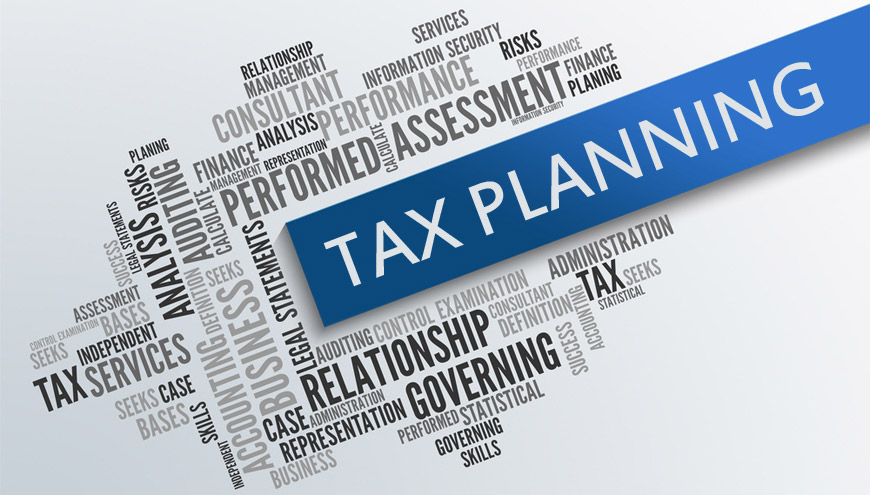
What is Tax?
Tax is a compulsory payment made by assessee to the government. Taxes are legal transactions are imposed on the issuing of shares, on the sale (or transfer) of houses, land and on stock exchange transactions. An amount of money that a government requires people to pay according to their income, the value of their property etc. That is used to pay for the things that done by the government.
What is Tax planning?
Tax planning is defined as using legal route to minimize tax liability. It is an arrangement of one’s financial affairs in such a way thst the burden of taxation on the assesse is reduced to the minium without violating in any way the legal provisions. Reduce the tax by using laws which provide relief, exemption, deductions etc. Examining tax laws to establish ways to pay the least tax possible. Tax planning is the analysis of a financial situation and plan to ensure that all elements work togethers to allow you to pay the lowest taxes possiblly. Tax planning should be an important part of an individual investor’s financial plan. Tax planning is defined as using legal route to minimize tax liability. Whenever governmet launch new economic zone, to attract investors government declare tax free zone. Tax planning involved investing at that particular area to pay minim tax. These exemptions are provided by government for social and economical development.
Tax planning strategies:
Here are some key tax planning strategies to understand before you make your next money move.
* Choose the right business structure.
* Learn how tax deductions and credits work.
* Decide between the standard deduction and items.
* Take benifits of popular tax credits and deductions.
* Keep good records and reports.
* Stay updated on Tax law changes.
Features of Tax planning:
- Tax planning is an exercise aimed at reducing tax liability by availing maximum benefits of various deductions, exemptions, allowance, rebate etc. Provided under tax laws.
- It is legal.
- It is acceptable in the eyes of law.
- Tax planning is not done against the intention of law maker.
- It is stressless device of decreasing tax burden.
- Government promoted tax planning.
- Tax planning is an honest effort of the tax payer to benefit himself and economy as a whole.
Outcome of Tax planning:
- To minimize legal proceedings:
To litigate is to resolve tax disputes issues with local, federal, state, or foreign tax authorities. There is often setlements between tax collectors and tax payers as the former attempts to extract the maximum amount possible while the latter attempt to keep their tax liability to a minimum. Minimizing litigation save the tax payer from legal debts.
- To ensure economic stability:
Taxpayer’s money is devoted to the betterment of the country and civilization. Effective and good tax planning and management provide a healthy flow of white money that results in the sound progress of the economy. This benefit both the citizens and the economy.
- Productive investment:
Productive investment includes mutual funds, fixed deposits, national pension schemes, endowment plans and much more. So, in a way, tax planning is creating investment and enable future growth.
- Gain peace of mind:
good tax planning provides individuals & businesses with peace of mind. By knowing that they have taken the necessary & important steps to optimize their tax situation, taxpayers can focus on their main activities without the constant worry of tax-related issues. This peace of mind increase overall financial well-being and reduces stress.
- Reduction in cost:
Tax becomes the part of cost of production. By reducing tax liability helps in increasing sale and profit.
- Employment Generation:
The amount so saved are investment in setting up of industrial undertaken or expansion in business which increase employment opportunities and also for planning the financial affairs require C.A. Legal advisors, lawyers etc.
Difference between tax planning & tax evasion:
Tax planning reduces liability by claiming deduction, exemption, allowance. Where as tax evasion reducing tax liability in dishonest manner.
Tax planning is fully legal and ethical where as tax evasion is unethical.
In tax planning we claim deduction U/S 80C to 80u whereas tax evasion increasing expenses by showing fake bills.
Tax planning is fully accepted in eyes of law whereas tax evasion is clearly prohibited, because it is fully illegal.
There is no penalty in tax planning whereas a heavy penalty in tax evasion.
Tax planning leads to the development of economy whereas tax evasion leads to the generation of black money.
Limitations of tax planning:
- The companies need expert advice for their investment.
- It is time consuming it takes a lot of time in deciding where to invest and where not to invest.
- As company hires an expert so their cost increased automatically as they have to pay to their advisor.
- Company has to focus on tax laws as it changes time to time, there are continuous amendments n tax laws.
- Company has to follow procedure so it is procedural difficulty.
Conclusion:
In conclusion, tax planning is a vital role of financial management and planning for individuals and businesses alike. By tactically organizing one’s finances and taking advantage of available deductions, credits and exemptions, tax payer can minimize their tax liabilities while staying compliant with relevant laws and regulations. Effective tax planning involves careful contemplation of various factors such as income sources, investments, retirement planning, and estate planning. It aims to maximize financial outcomes by legally and ethically reducing tax burdens, consequently preserving more wealth for future goals and undertakings. However, tax rules and regulations are complex and subject to change, requiring regular reviews and adjustments to tax strategies. Seeking professional guidance from tax advisors or financial planners can help individuals and businesses navigate the intricacies of tax planning and make informed decisions to achieve their financial targets while staying within legal boundaries. Overall, preventive and well-informed tax planning is key to achieving financial stability and maximizing wealth aggregation over the long term.
“Tax planning is the art of arranging your affairs to minimize the tax bite.”
Judge Learned Hand

